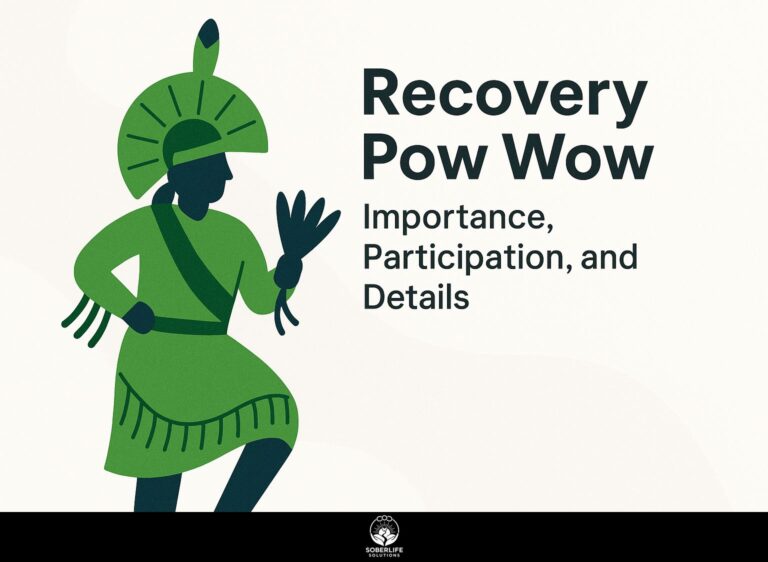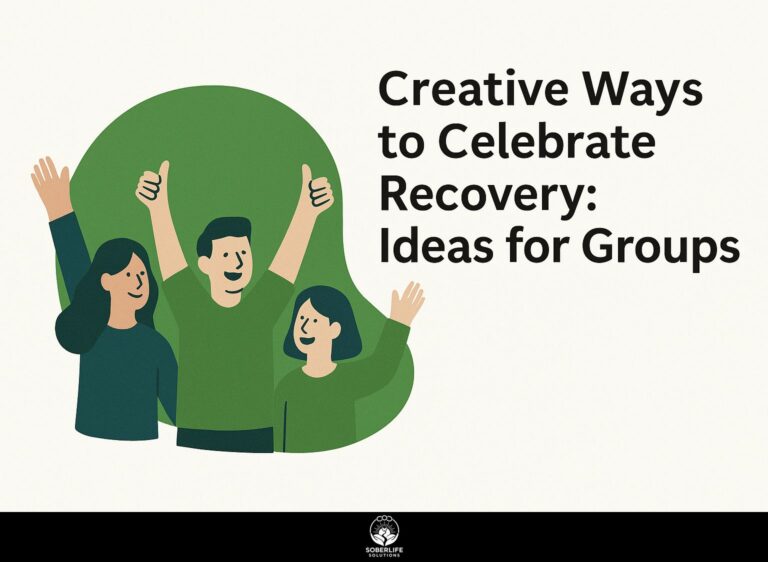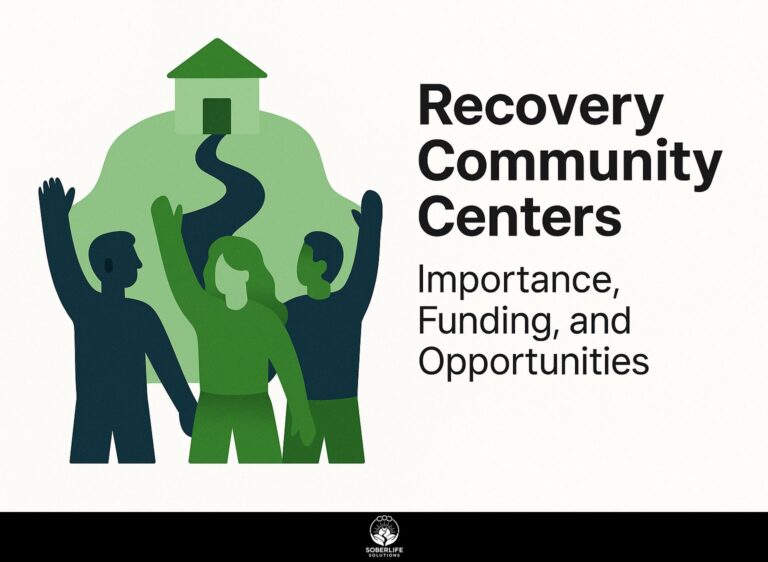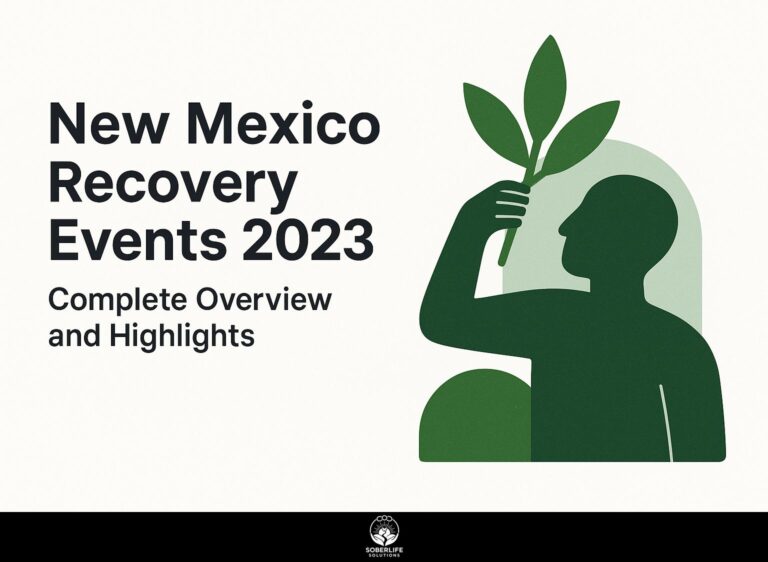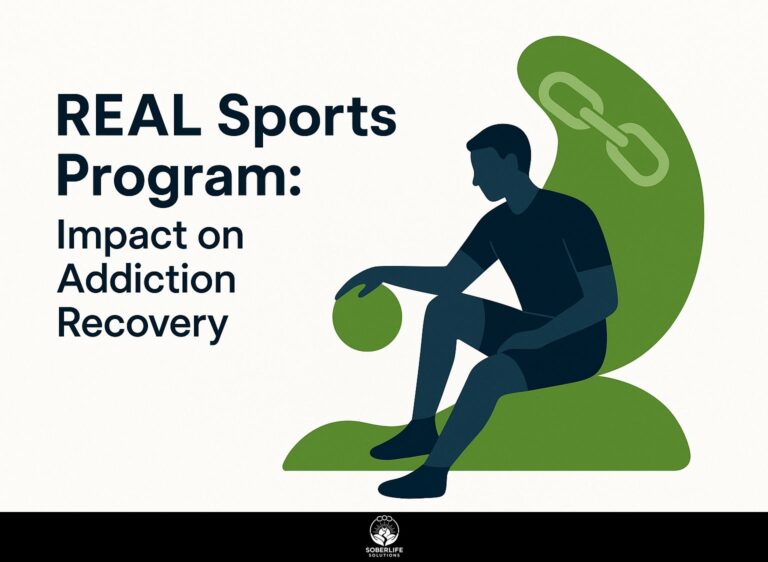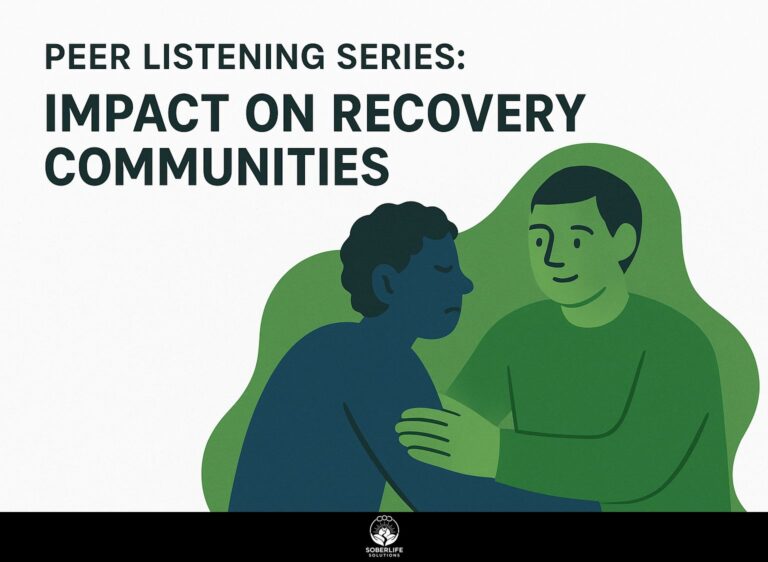Recovery Events: Goals, Participation, and Highlights
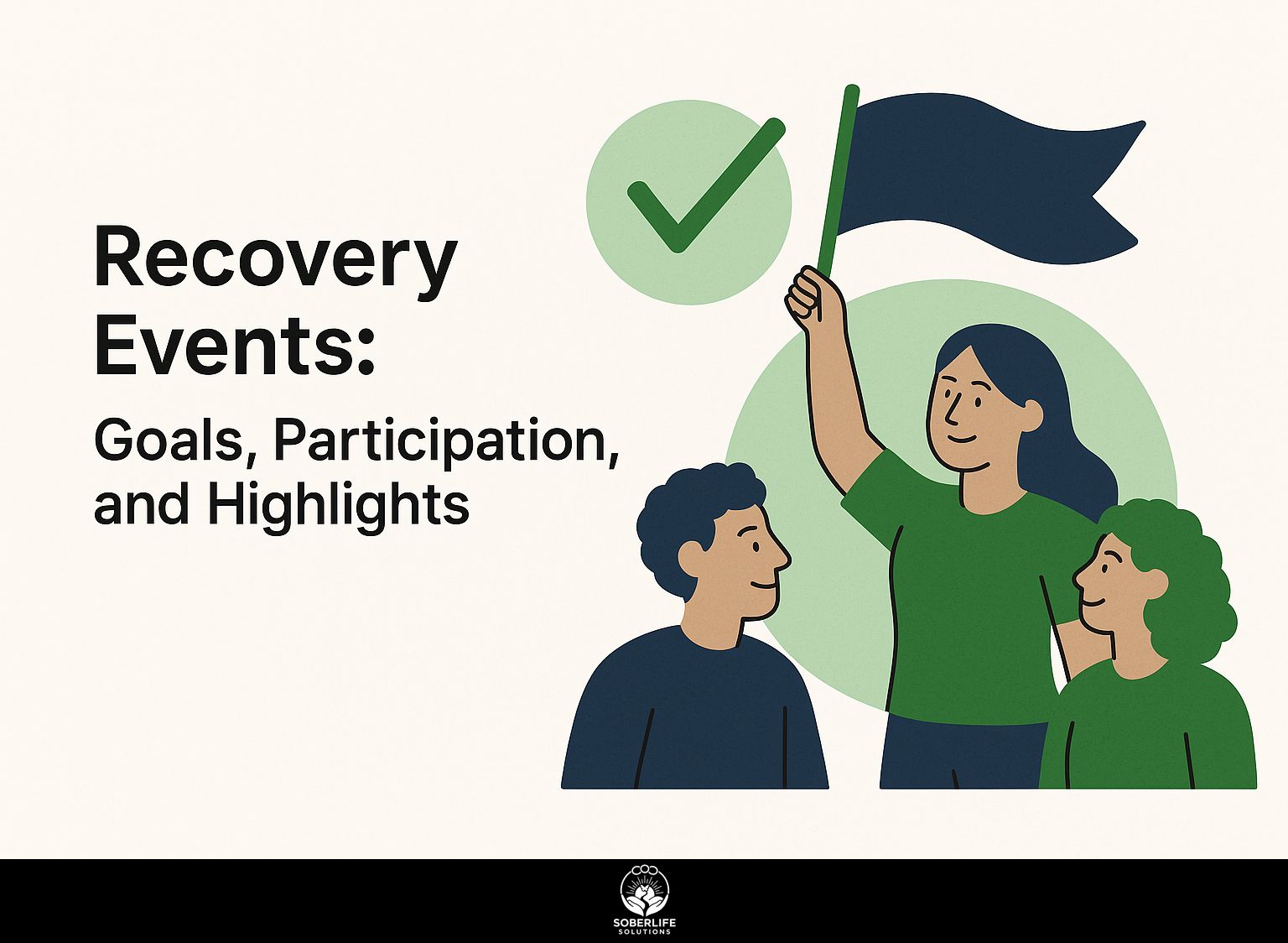
Recovery events are important in overcoming addiction, offering a place to set achievable recovery goals. Using SMART criteria allows individuals to set realistic goals and build a reliable support system. This article discusses the aims of these events, why community participation matters, and showcases effective projects that encourage self-improvement. Join us as we examine how recovery events help people achieve lasting change.
Key Takeaways:
Definition and Purpose
Recovery events are organized gatherings aimed at promoting addiction recovery, mental health awareness, and emotional support among participants.
These events serve multiple purposes. For instance, they create safe spaces where individuals can share their experiences without judgment.
They often include workshops that teach effective coping mechanisms, such as mindfulness and stress reduction techniques. Participants mark achievements together, creating a feeling of togetherness and encouragement.
Platforms like Meetup help organize events, and Zoom enables online meetings, providing help to those who cannot join physically. These gatherings span various locations, such as [New Mexico Recovery Events](https://soberlifesolutions.com/new-mexico-recovery-events/), offering a diverse array of activities tailored to support participants.
Additionally, peer support groups are crucial in these recovery efforts. HelpGuide outlines the importance of groups like NA, emphasizing how they provide people support in their recovery, strengthening their determination and optimism, a conclusion supported by HelpGuide.
Importance in Community Healing
Recovery events help build strong community healing by providing supportive spaces where people can connect and grow stronger together.
These events often include workshops, support groups, and social gatherings, allowing individuals to share experiences and strategies.
Studies show that 70% of participants report feeling more supported after attending, demonstrating the impact of collective healing.
To get involved, consider joining local organizations or platforms like Meetup to connect with recovery-focused groups. Joining in can help people develop personally and create solid ties within the community, which are essential for ongoing recovery. This aligns with the principles outlined in our article on Building New Connections for Recovery.
Volunteering at events can also deepen these connections while reinforcing your own commitment to healing. According to SAMHSA’s Evidence-Based Practices Resource Center, engaging in community-based recovery initiatives can significantly enhance personal development and strengthen communal bonds.
Goals of Recovery Events
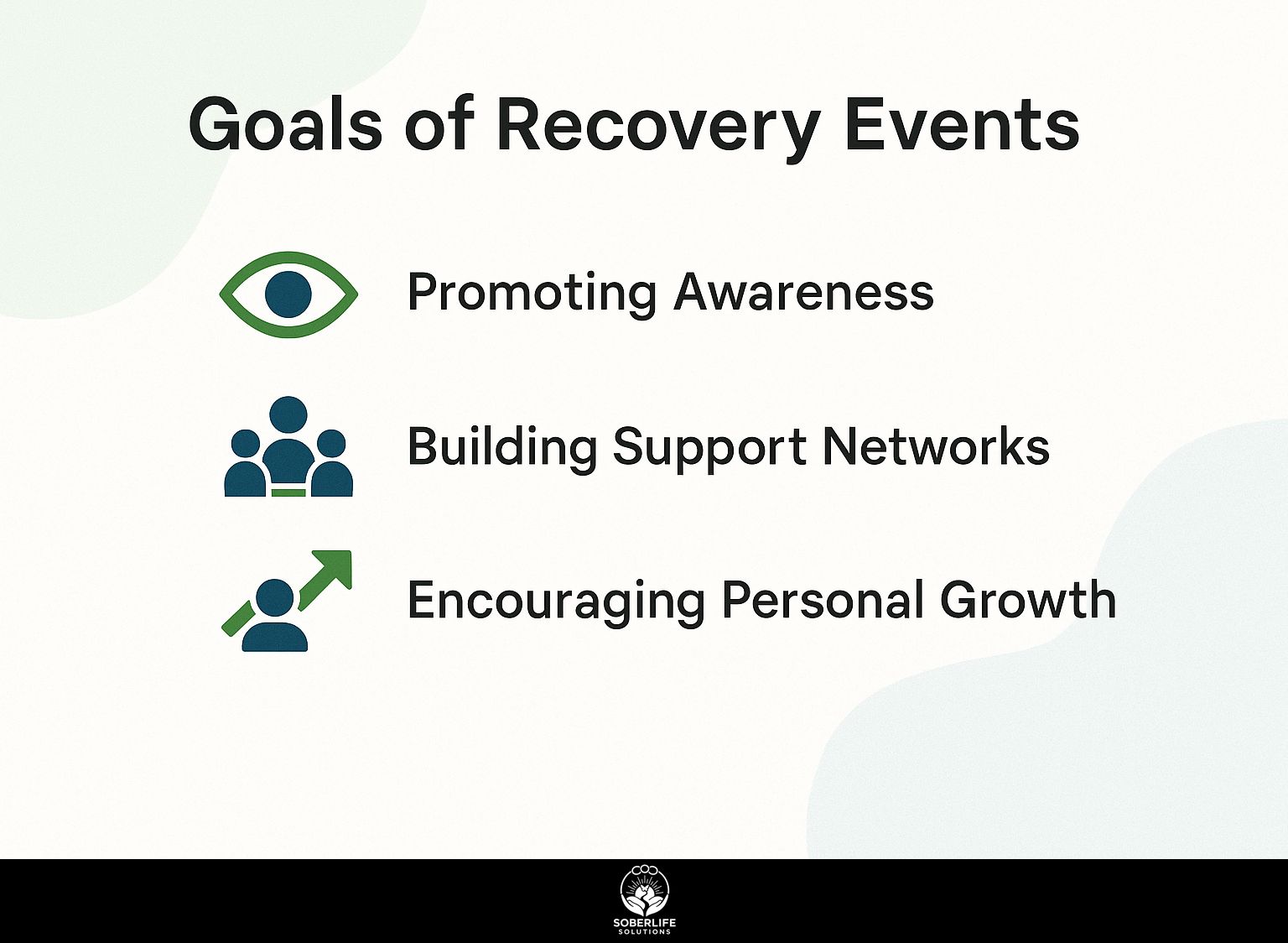
Recovery events raise awareness, build support networks, and promote personal growth for attendees.
Promoting Awareness
Recovery events significantly raise awareness about addiction and mental health issues, encouraging informed discussions and reducing stigma.
Workshops led by experts such as Dr. Sarah Johnson from the Hazelden Betty Ford Foundation are important for sharing knowledge. According to a report by SAMHSA, such efforts are crucial in increasing public understanding of addiction.
For example, attendees often participate in discussions that show data indicating a 40% rise in public knowledge about addiction after the event.
Using tools like feedback surveys improves these workshops, helping organizers adjust upcoming sessions to match attendee preferences.
By offering sessions led by experts and involving the community, we can create a space that educates and helps people as they recover.
Building Support Networks
These events play an important role in building strong support systems, linking people with friends, mentors, and resources that help them in their recovery process.
To make the most of networking chances at these events, think about joining breakout sessions. These smaller group meetings encourage close conversations and stronger connections.
Participating in peer mentoring programs can be helpful; these programs offer organized support and advice from people who have gone through similar situations.
Organizations like SAMHSA facilitate these connections, encouraging participants to share their stories and learn from one another.
Being part of community boards or local outreach groups after the event can help keep these connections strong, providing continued support as you recover.
Encouraging Personal Growth
Participants in recovery events often experience significant personal growth, facilitated through structured goal-setting and engagement in therapy sessions.
Defining goals with SMART criteria-Specific, Measurable, Achievable, Relevant, Time-bound-helps people set clear targets for recovery.
For example, instead of saying ‘get better,’ a clear goal would be: ‘I will attend two therapy sessions each week for three months to improve my coping skills.’
Testimonials from past attendees show that they experienced significant changes. Many mentioned that these systems helped them stay responsible and motivated, greatly changing their thinking and progress over time.
Participation in Recovery Events
Joining recovery events is open to everyone, bringing together people from various backgrounds, including those in recovery and their families.
Who Can Participate?
Recovery events welcome a diverse group, including individuals in recovery, their families, and community members interested in supporting recovery goals.
Events are effective when they have activities that get everyone involved.
For example, hosting open workshops at local community centers allows participants to engage in discussions and share their experiences. Offering family support sessions helps create a supportive atmosphere for loved ones.
Including different presentations, such as recovery stories from various cultural backgrounds, makes the experience richer. By backing activities that involve all individuals, organizers can make people feel valued and respected, helping to create a tighter recovery community.
Recruitment Strategies
Successful recruitment for recovery events involves using social media, working with local organizations, and engaging with the community to draw in participants.
-
To improve your recruitment efforts, use Facebook to make event pages and advertisements that reach people who are interested in recovery support.
-
Collaborating with local organizations, such as Cedar Recovery, can improve visibility; consider joint events or mutual promotion on social media.
-
Engage the community by attending health fairs or workshops, where you can meet potential participants face-to-face and distribute informative materials.
These actionable strategies will help build a stronger, more connected recovery community.
Types of Recovery Events
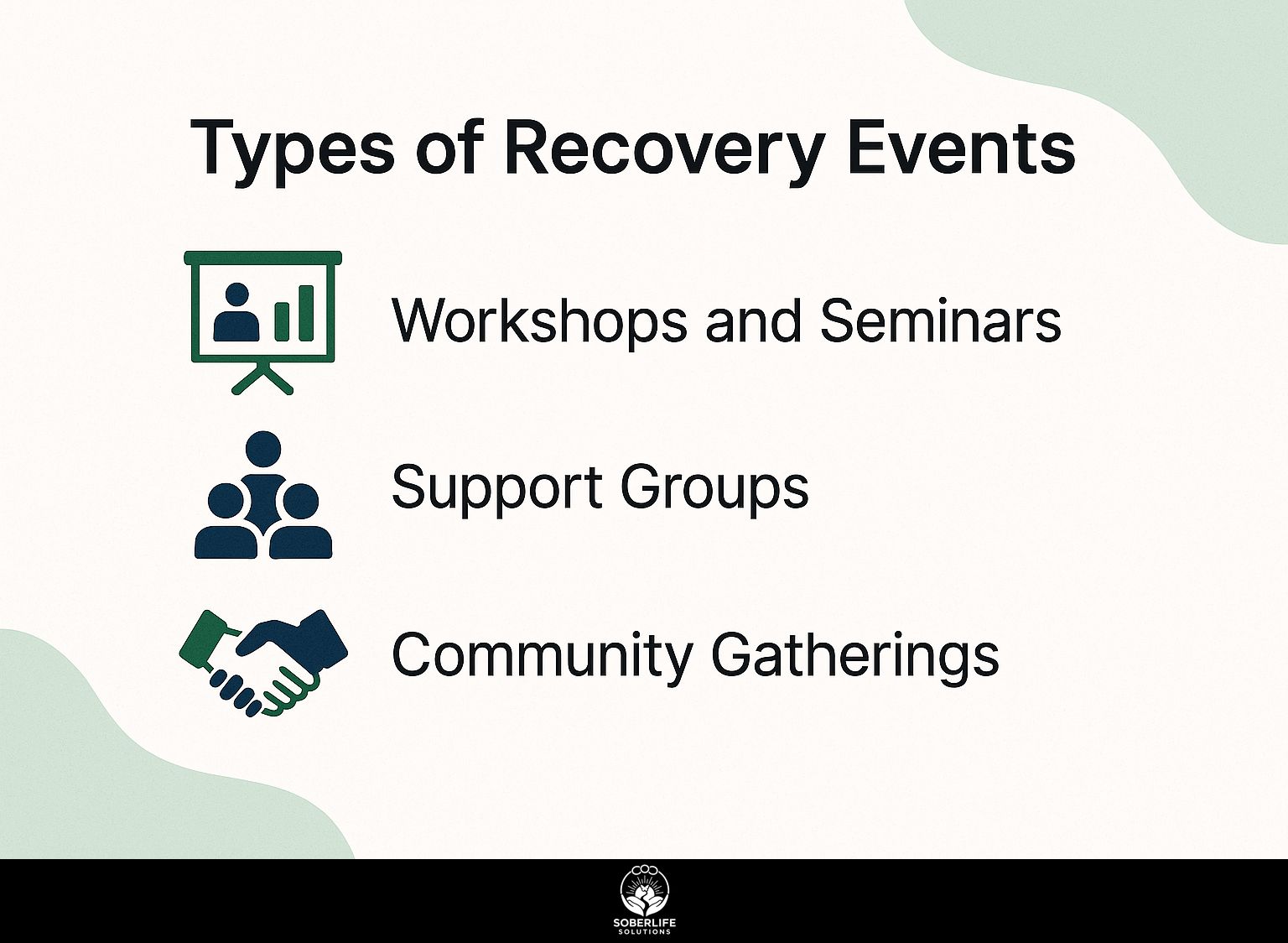
Recovery events come in different forms, each with its own purpose and focus on specific parts of the recovery process. For those looking to engage more deeply, our comprehensive guide to 2023 recovery events delves into the various activities and ways to participate.
Workshops and Seminars
Workshops and seminars offer important learning materials, discussing subjects such as ways to handle stress and methods for looking after oneself, which are essential for healing.
They offer structured environments where participants engage in hands-on learning.
For instance, mindfulness workshops can teach emotional regulation techniques, allowing individuals to better manage stress. These workshops include guest speakers who share different viewpoints and successful methods.
Activities such as guided meditation and journaling exercises support the application of learned lessons in everyday life. The supportive environment helps people work together, improving recovery results and promoting long-term change.
Support Groups
Support groups are important for recovery events. They provide a space for people to talk about their experiences and form mentoring connections with others.
To structure an effective support group, consider implementing regular weekly meetings that encourage consistent participation.
Have an experienced individual manage each session to guide discussions, ensuring everyone gets the chance to talk. A successful approach, similar to Arista Recovery, combines open discussions with focused topics, enabling participants to learn from each other while finding their paths.
Getting feedback from forms after sessions helps make the group meet participants’ needs more effectively over time.
Community Gatherings
Community gatherings promote engagement and connection among individuals in recovery, reinforcing sober friendships and shared experiences.
Different formats for these gatherings can include:
- Substance-free parties
- Support group meetings
- Outdoor activities
Substance-free parties, for instance, create a lively atmosphere where participants can enjoy music, games, and food without the pressure of alcohol. The Ikon Recovery Center has successfully hosted events like these, where they have reported a 30% increase in social engagement among attendees.
Support group meetings provide a structured setting for sharing experiences, while outdoor activities like hiking and sports encourage friendship and physical health.
Each format is essential in creating a helpful network.
Highlights of Successful Recovery Events
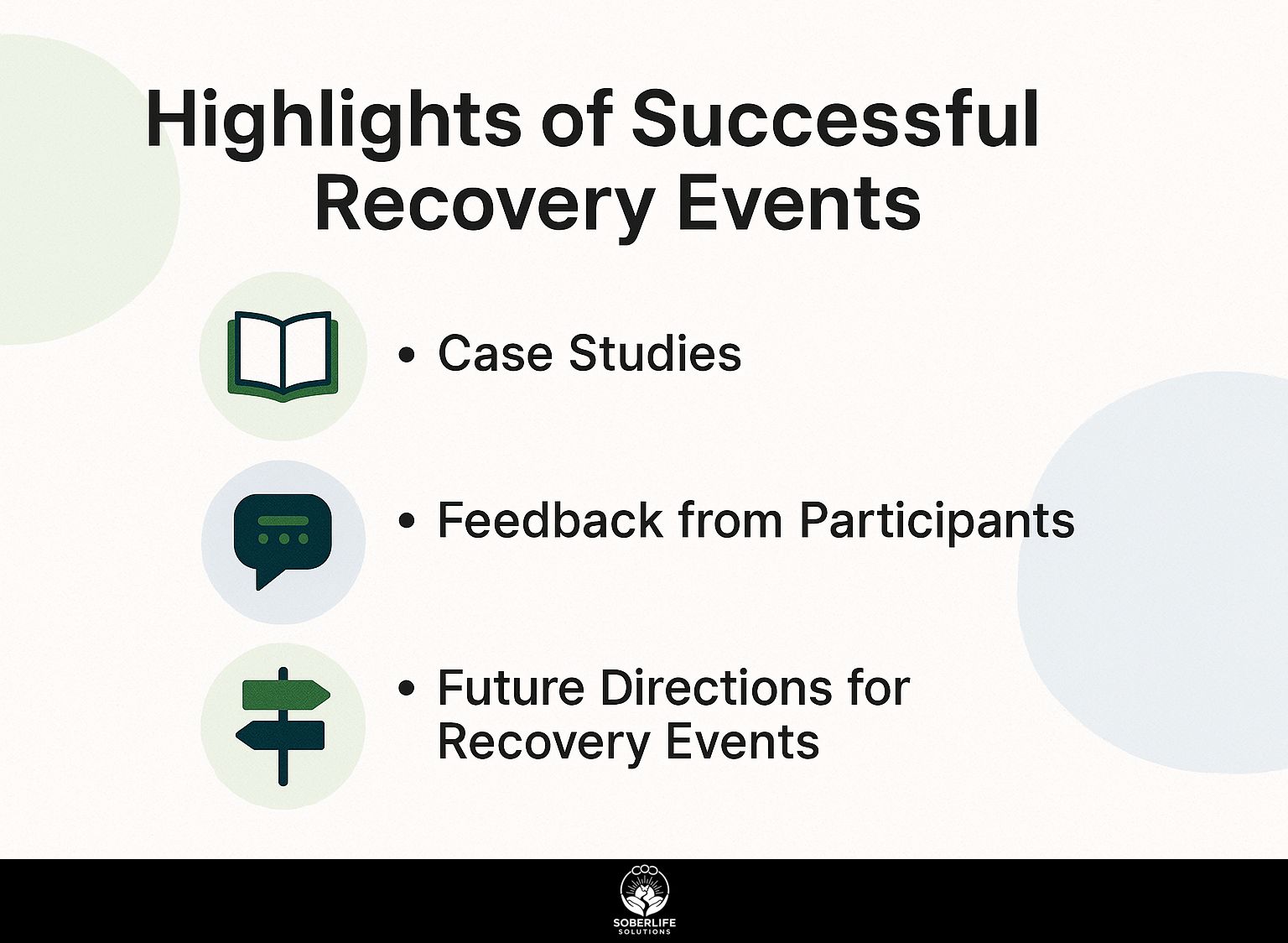
Recovery events that go well often result in clear benefits, shown by participant comments and measurable results.
Case Studies
Examples of significant recovery events show how they positively affect the experiences of those involved and the interactions within the community.
A clear example is the ‘Hope and Healing’ retreat for young adults aged 18-30. With a goal of increasing emotional resilience, the event attracted 50 participants, achieving a 90% satisfaction rate according to post-event surveys.
The ‘Journey Together’ program was made to help families facing addiction issues. This initiative saw a 30% improvement in family engagement scores after completing its workshops.
Both events show how organized recovery activities can help build relationships, knowledge, and practical abilities for both participants and their communities.
Feedback from Participants
Feedback from participants provides useful information on how recovery events affect individuals’ experiences and feelings.
Gathering qualitative feedback from participants can be achieved through surveys and focus groups. For example, after a recovery event, distribute a brief survey asking attendees to rate their experiences and share personal stories.
This could include questions like:
- “What moment most influenced your path to recovery?”
- “How can upcoming events better meet your needs?”
Doing follow-up interviews can help us better understand the emotional changes experienced by participants. Reviewing this feedback will show what we did well and where we can improve for the next events.
Future Directions for Recovery Events
Plans for recovery events involve using technology to improve interaction and increasing the resources for participants.
One effective approach is to offer virtual attendance options, which can significantly increase accessibility for those unable to attend in person.
Working with mental health organizations can offer helpful resources, like workshops and counseling services, improving the support network available to participants (see how Secular Organizations for Sobriety provide valuable support).
Utilizing social media platforms for promotion and engagement can also expand outreach efforts, allowing for real-time interaction and feedback.
These programs encourage participation and make the environment friendly for all attendees.
Frequently Asked Questions
What are recovery events?
Recovery events are gatherings where people recovering from addiction meet to support each other, share their stories, and celebrate their path to sobriety.
What is the goal of recovery events?
The goal of recovery events is to provide a safe and supportive environment for individuals in recovery to connect with others, share their stories, and celebrate their accomplishments. These events help reduce the negative perceptions about addiction and improve knowledge of the recovery process.
Who can participate in recovery events?
Anyone who is in recovery from addiction or supports individuals in recovery is welcome to participate in these events. This includes individuals in the early stages of recovery, those who have been sober for a long time, and even loved ones of individuals in recovery.
What are some common highlights of recovery events?
Some common highlights of recovery events include guest speakers sharing their personal stories, group discussions about recovery-related topics, and fun activities such as art therapy or outdoor excursions. These events often bring people together, creating a friendly and supportive atmosphere.
How can I find recovery events in my area?
You can search online for recovery events in your area, ask for recommendations from your therapist or support group, or reach out to local addiction treatment centers or organizations. Social media groups and community bulletin boards may also have information about upcoming recovery events.
Can I attend recovery events if I am not in recovery myself?
Yes, many recovery events welcome and encourage loved ones and allies of individuals in recovery to attend. This can help explain the recovery process and express encouragement for those working on recovery. Respect the personal space and limits of people in recovery and make sure you have their permission before attending.

